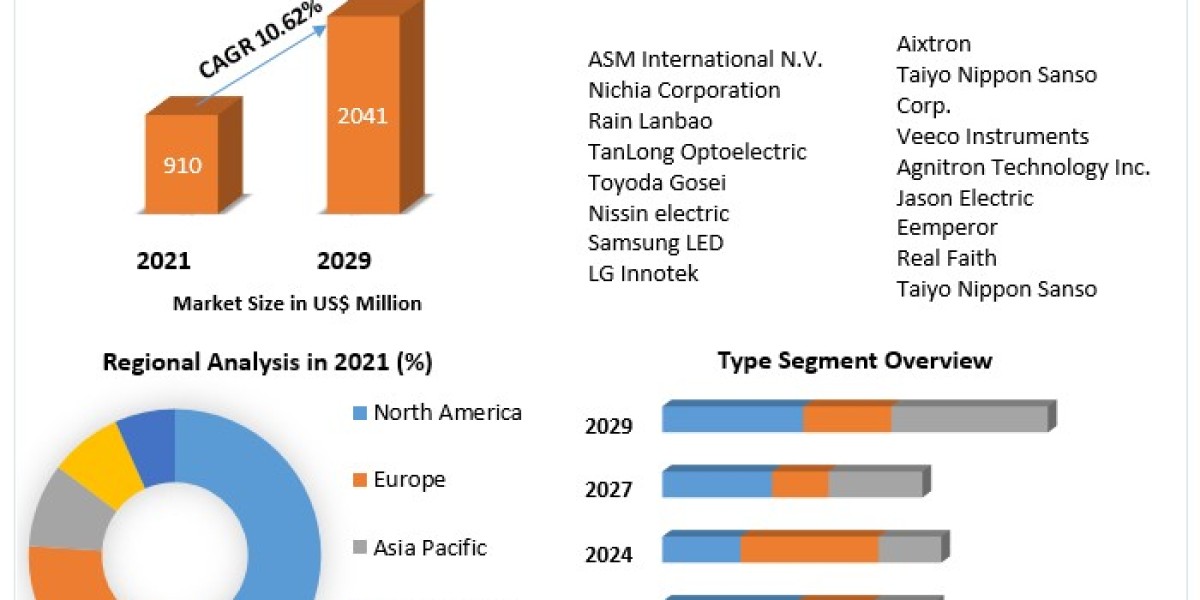In the dynamic and ever-evolving healthcare industry, the effective management of medical billing plays a crucial role in ensuring the financial stability of healthcare providers. Specifically, in Obstetrics and Gynecology (OBGYN), optimizing medical billing processes is essential for the healthcare facility and the patients. This comprehensive article aims to explore the intricacies of OBGYN medical billing systems, shedding light on the challenges faced, current trends, and innovative solutions to improve efficiency in this specialized area of healthcare.
Understanding OBGYN Medical Billing
The Unique Challenges of OBGYN Billing
OBGYN medical billing is distinctive due to the complex nature of services, ranging from routine check-ups to intricate surgical procedures. Billing for prenatal care, deliveries, and gynecological surgeries requires a nuanced understanding of coding and documentation. This section delves into the specific challenges OBGYN billing professionals face, such as accurate coding for pregnancy stages and handling insurance claims related to obstetric procedures.
Importance of Precision in Coding
Precision in coding is paramount in OB GYN medical billing to avoid claim denials and ensure proper reimbursement. This subsection explores the significance of accurate coding in OBGYN billing, emphasizing the role of standardized coding systems like Current Procedural Terminology (CPT) and International Classification of Diseases (ICD) codes. Additionally, it discusses the impact of coding errors on revenue and compliance.
Key Components of OB GYN Medical Billing Systems
Electronic Health Records (EHR) Integration
Efficient OB GYN medical billing relies heavily on the integration of Electronic Health Records. This section elucidates how seamless integration of EHR with billing systems enhances accuracy by reducing manual data entry errors and streamlining the billing workflow. It also explores the benefits of real-time data access for healthcare providers and billing professionals.
Patient Information Security and Compliance
Ensuring patient information security and compliance with healthcare regulations are integral aspects of OB GYN medical billing systems. This subsection delves into the importance of safeguarding sensitive patient data, complying with Health Insurance Portability and Accountability Act (HIPAA) regulations, and the role of secure billing platforms in maintaining confidentiality.
Streamlining Appointment Scheduling and Billing
An efficient OB GYN medical billing system should seamlessly integrate with appointment scheduling. This section discusses the advantages of synchronized scheduling and billing processes, reducing administrative burdens, minimizing errors, and improving patient satisfaction. It also explores how automation in appointment scheduling can contribute to billing efficiency.
Technological Advancements in OB GYN Medical Billing
Artificial Intelligence (AI) in Coding and Documentation
Integrating AI in OB GYN medical billing has revolutionized coding and documentation processes. This subsection explores how AI-powered algorithms can analyze clinical documentation to suggest accurate codes, reducing the burden on billing professionals and minimizing errors. It also discusses the potential for AI to adapt to evolving coding standards.
Blockchain Technology for Secure Transactions
Blockchain technology has gained prominence for enhancing security in financial transactions. In the context of OB/GYN medical billing, this section examines how blockchain can secure billing transactions, protect patient data, and prevent fraudulent activities. It also discusses the potential for transparent and tamper-proof billing records.
The Role of Automation in OBGYN Billing
Claims Processing Automation
Automating claims processing is a pivotal aspect of improving efficiency in OB/GYN medical billing. This subsection explores how automation can expedite claims submission and adjudication, reducing claim denials and accelerating reimbursement. It also delves into implementing robotic process automation (RPA) in handling repetitive billing tasks.
Benefits of Automated Revenue Cycle Management
Efficient revenue cycle management is indispensable for the financial health of OBGYN practices. This section elucidates how automation in revenue cycle management can streamline billing workflows, enhance accuracy in financial reporting, and expedite revenue collection. It also discusses the potential cost savings associated with automated processes.
OBGYN Billing and Regulatory Compliance
Navigating Medicare and Medicaid Regulations
Compliance with Medicare and Medicaid regulations is paramount for OBGYN practices to avoid legal repercussions and financial penalties. This subsection explores the intricacies of billing for OBGYN services under government-sponsored programs, emphasizing the importance of staying updated on policy changes and navigating complex reimbursement structures.
Billing Compliance Audits and Best Practices
Regular billing compliance audits are essential for OBGYN practices to proactively identify and rectify potential issues. This section discusses the best practices for conducting internal audits, ensuring adherence to coding guidelines, and mitigating compliance risks. It also emphasizes the significance of continuous staff training to stay abreast of regulatory changes.
Challenges and Solutions in OBGYN Billing
Staff Training and Skill Development
The need for more skilled billing professionals in the OBGYN sector poses a significant challenge. This subsection explores the importance of ongoing staff training and skill development programs to address this issue, ensuring that billing professionals are well-versed in the intricacies of OBGYN coding and documentation.
Addressing Denied Claims and Revenue Leakage
Denied claims and revenue leakage are common challenges in OBGYN billing. This section delves into strategies for minimizing claim denials, appealing denied claims effectively, and plugging revenue leaks into the billing process. It also emphasizes the role of data analytics in identifying patterns leading to contradictions.
Future Trends in OBGYN Billing
Telehealth and Remote Billing
Telehealth has transformed how healthcare services are delivered, including OBGYN consultations. This subsection explores the implications of telehealth on OBGYN billing, highlighting the challenges and opportunities associated with remote billing processes. It also discusses the role of telehealth in expanding access to OBGYN services.
Value-Based Care in OBGYN Billing
The shift towards value-based care models is influencing billing practices in OBGYN. This section examines the concept of value-based care in the context of OBGYN services, exploring how it aligns with patient outcomes and reimbursement structures. It also discusses the challenges and benefits of transitioning to value-based billing models.
Frequently Asked Questions (FAQs)
What makes OB/GYN medical billing different from other medical billing processes?
OB/GYN medical billing is distinctive due to the complex nature of services, ranging from routine check-ups to intricate surgical procedures. The billing for prenatal care, deliveries, and gynecological surgeries requires a nuanced understanding of coding and documentation, setting it apart from other medical billing processes.
How does precision in coding impact OB GYN medical billing processes?
Precision in coding is paramount in OB GYN medical billing to avoid claim denials and ensure proper reimbursement. Accurate coding using standardized systems like CPT and ICD is crucial, and coding errors can significantly impact revenue and compliance.
How does Electronic Health Records (EHR) integration enhance OB GYN medical billing efficiency?
Seamless integration of EHR with billing systems enhances accuracy by reducing manual data entry errors and streamlining the billing workflow. This integration also allows real-time data access, benefiting healthcare providers and billing professionals.
What role does artificial intelligence (AI) play in OB GYN medical billing, specifically in coding and documentation?
AI-powered algorithms analyze clinical documentation to suggest accurate codes, reducing the burden on billing professionals and minimizing errors. The application of AI in OB GYN medical billing is pivotal for adapting to evolving coding standards.
How can blockchain technology contribute to secure transactions in OB GYN medical billing?
Blockchain technology can be utilized to secure billing transactions, protect patient data, and prevent fraudulent activities. Its transparent and tamper-proof nature makes it an effective solution for ensuring the security of financial transactions in OB/GYN medical billing.
What are the key benefits of automating claims processing in OB/GYN medical billing?
Automating claims processing expedites the claims submission and adjudication, reducing claim denials and accelerating reimbursement. This automation, including robotic process automation (RPA), is crucial for enhancing overall efficiency in OB/GYN medical billing.
How do OBGYN practices navigate Medicare and Medicaid regulations in medical billing?
Compliance with Medicare and Medicaid regulations is essential for OBGYN practices to avoid legal repercussions and financial penalties. Understanding the intricacies of billing for OBGYN services under government-sponsored programs is crucial for navigating complex reimbursement structures.
What strategies can address denied claims and revenue leakage in OB/GYN medical billing?
Minimizing claim denials, appealing denied claims effectively, and plugging revenue leaks are common challenges in OB/GYN medical billing. This section of the article discusses various strategies and the role of data analytics in identifying patterns leading to denials.
How does the shift toward telehealth impact OB GYN medical billing processes?
The advent of telehealth has transformed the delivery of healthcare services, including OBGYN consultations. This section of the article explores the implications of telehealth on OB GYN medical billing, highlighting the challenges and opportunities associated with remote billing processes.
Conclusion
In conclusion, optimizing efficiency in OBGYN medical billing is imperative for the financial viability of healthcare providers and the overall quality of patient care. This comprehensive exploration has delved into the unique challenges of OBGYN billing, the key components of effective billing systems, technological advancements, the role of automation, regulatory compliance considerations, and future trends shaping the landscape of OB GYN medical billing. By embracing innovative solutions and staying abreast of industry changes, OBGYN practices can enhance their billing processes and contribute to the broader goal of delivering high-quality and financially sustainable healthcare services.








